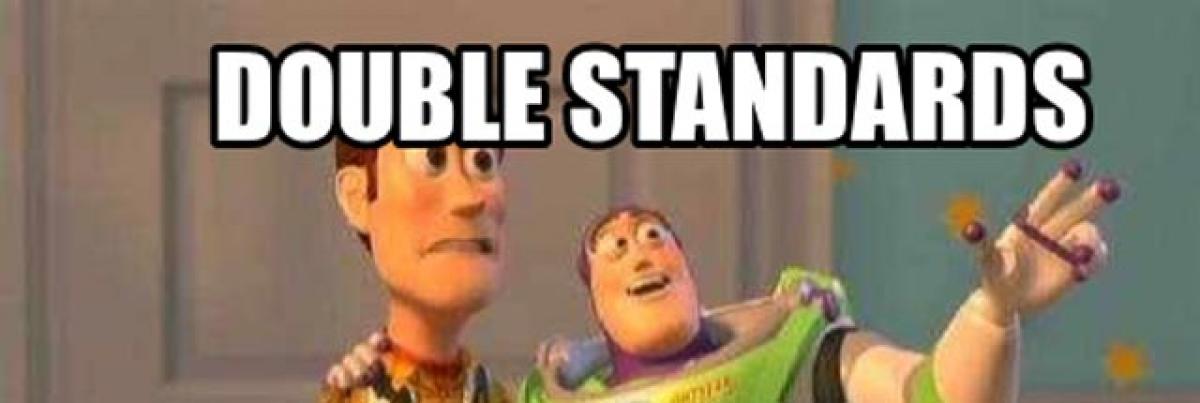Live
- Flash floods cause severe property damage in north Afghanistan
- Jordan says shooting incident against police patrol 'terrorist attack'
- Israeli rabbi killed in UAE in suspected 'terror attack': Israel
- IPL 2025 Auction: Shreyas Iyer sold to PBKS for record-breaking bid of Rs 26.75 cr
- Kyrgyzstan to ban vapes, electronic cigarettes
- How to maximise your EV's range: Tips and tricks for better longevity
- COP29 reaches global climate deal package
- Romanians vote in first round of presidential election
- Beijing braces for cold wave, rain, snow
- Gunman killed, three injured in shooting near Israeli embassy in Jordan
Just In

Mariyappan Thangavelu and Varun Bhatia are unfamiliar names in the world of Indian sports. It is the same fate that beheld N Girisha and a handful of others who won universal fame but remain faces in a crowd.
Mariyappan Thangavelu and Varun Bhatia are unfamiliar names in the world of Indian sports. It is the same fate that beheld N Girisha and a handful of others who won universal fame but remain faces in a crowd. And that is the sort of tragedy Thangavelu and Bhatia live on a daily basis in spite of being champion high jumpers. There many such unsung heroes in India, whose exploits go unnoticed and miss the pages of most frontline newspapers.
This comes in stark, and rather painful, contrast to the adulation a Ranji trophy debutant gets in cricket-mad India. Today, the entire nation is going ga ga over the two for having scripted an extraordinary fairytale in the 2016 Summer Paralympics, a multi-sport event for athletes with disabilities that is spearheaded by the International Paralympic Committee, at Rio de Janeiro. Thangavelu, the 20-year-old fruit-seller’s son, has not merely leapt into Olympic folklore but, in a way, more than compensated for the disastrous outing by the regular sportspersons a month back.
Only two Indians, PV Sindhu and Sakshi Malik, had podium finishes and that too at the fag-end of the Games whereas these two special athletes have put India on the world map on the third day of the ongoing edition, which concludes on September 18. For the records, Thangavelu won the gold medal while compatriot Varun Singh Bhati clinched the bronze in the men high jump T-42 event to make it a memorable weekend for India. There is a poignant touch to T-42 competitions as it is for differently-abled track-and-field athletes with single ‘above the knee’ amputations or a comparable disability.
Till date, no Olympic event has seen two Indians finishing at the podium in the same event. Truth to speak, it is not a triumph over adversity and pain for Indian athletes alone but to the entire lot that is out there in Brazil eyeing a place of permanence in Olympic history. Coming to the brass-tacks, which also expose the double standards prevalent in India, barring front page coverage and breaking news slotting for Thangavelu and Bhatia, there has been no euphoric celebration from the officialdom. Not even a single policymaker has announced anything substantial for the two trail-blazers.
It is an inhuman act considering that minutes after Sindhu and Malik won their respective medals they were showered with crores of rupees while only Tamil Nadu Chief Minister J Jayalalithaa has come up with a two crore rupees reward for the golden jumper from Salem. A development that leaves even the cold-blooded individuals seething with rage is that the gifted youngsters who won several medals in the Summer Special Olympics-2015 at Los Angeles went into forced oblivion.
The rewards for 247 India medalists were a pittance compared to what Sindhu and Malik or the London medalists were given. Even if some Good Samaritans show largesse and gift money and land to the latest heroes, it would be a tad too late in the day. Indeed, for all their achievements, Thangavelu and Bhatia will remain obscure faces once the regulars start hitting the headlines.

© 2024 Hyderabad Media House Limited/The Hans India. All rights reserved. Powered by hocalwire.com







